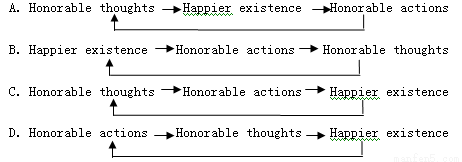题目内容
--Peter, hurry up! You ______ on the phone.
--Oh, I ______. Thank you.
A. are being wanted; come
B. are wanted; am coming
C. want; come
D. will be wanted; should come
B
【解析】
试题分析:考查动词的时态及语态。sb be wanted叫某人听电话;be coming用进行时表将来。句意:--皮特,快点,你的电话。--哦,我马上就来,谢谢。故选B。
考点:考查动词的时态及语态。

练习册系列答案
 世纪百通期末金卷系列答案
世纪百通期末金卷系列答案
相关题目
